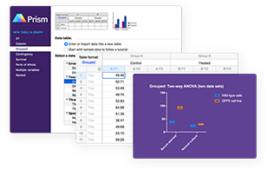 The heart as a simulation: In a new project funded by the Deutsche Forschungsgemeinschaft (DFG) scientists of TU Dresden explore the computational modeling of the human heart. They hope to gain a better understanding of its complex operation and, thus, better treatments for cardiac patients. The computer simulations will be developed at the Institute for Structural Analysis headed by Professor Michael Kaliske.
The heart as a simulation: In a new project funded by the Deutsche Forschungsgemeinschaft (DFG) scientists of TU Dresden explore the computational modeling of the human heart. They hope to gain a better understanding of its complex operation and, thus, better treatments for cardiac patients. The computer simulations will be developed at the Institute for Structural Analysis headed by Professor Michael Kaliske.
Ceaseless beats of the human heart, which last from early stages of embryo till death, circulate the blood through the body, thereby providing crucial substrates maintaining the vitality of every cell. Hence, any disorder in this circulation system might cause loss of life quality, stroke or even sudden death. According to the World Health Organization, in 2012, heart diseases and stroke correspond to 31 percent of all global deaths.
As scientists gain superior insight to working mechanisms of the heart, it will be possible to develop more efficacious treatment techniques, thereby reducing the mortality and economical side effects of heart diseases. However, understanding how the heart functions is a demanding task due to its complexity, in particular, due to the encountered difficulties in vivo experiments. Besides, each patient’s heart possesses its own characteristics. In this context, computational modeling might increase our comprehension and serve as a milestone in achieving more successful patient specific therapies.
Cardiac resynchronization therapy (CRT) is one of the most frequently used treatment methods for patients having reduced cardiac pump functions caused by dyssynchronous contraction of the ventricles. A successful CRT depends on factors such as selection of patients, position of the pacemaker leads, timing and magnitude of pacing. However, a definite pacing configuration appropriate for all patients does not exist, and one-third of patients do not respond to CRT. At this point, computer simulations might predict CRT feasibility, thereby supporting cardiologists to accomplish an optimum treatment strategy.
The current project (KA 1163/18-2) granted by the DFG is concerned with improvement of the numerical schemes that were established earlier in the project (KA-1163/18-1) with novel tools leading to a comprehensive simulation of the heart. Subsequently, the predictive capacity of the developed framework will be assessed in terms of computer analysis of virtual personalized heart models. To this end, patient-specific heart models will be created suitable for finite element simulations. The established numerical tools will be validated with clinical data obtained from humans having healthy and unhealthy cardiac functions. Furthermore, the capacity of the framework will be assessed according to data of patients who have already undergone CRT. Finally, the researchers will try to obtain insight to CRT and optimize the pacemaker set up with an aim to achieve an optimum CRT in computer simulations.
The project “Computational Electromechanics of the Heart: Development of Predictive Simulation Tools for Patient Specific Analysis” is funded by DFG with 298.247 Euros from 2016 to 2018. The Institute for Structural Analysis at TU Dresden (Univ.-Prof. Dr.-Ing. habil. M. Kaliske) cooperates closely with the Heartcentre at TU Dresden (Univ.-Prof. Dr. med. R. H. Strasser).




